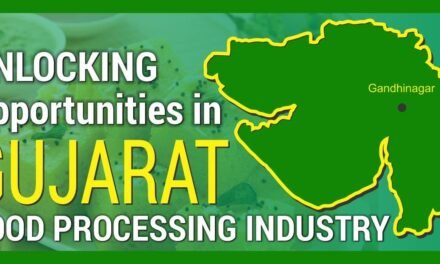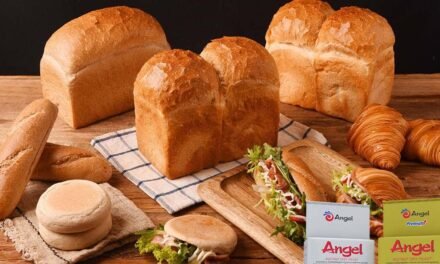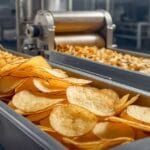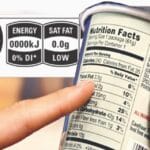The bakery business in India is the largest business in the food processing sector. Furthermore, bakery products have become very popular around the nation. This article tries to explain how to start a successful bakery business in India.
Know Before You Start Bakery Business
By 2023, the Indian bakery market will be worth $12.6 billion. Looking ahead, IMARC Group estimates the market to reach US$ 29.4 billion by 2032, with a compound annual growth rate (CAGR) of 9.6% from 2024 to 2032. The growing population and shifting consumer preferences, fueled by factors such as western cuisine trends, greater consumption of cakes and RTE meals, and expanding retail and e-commerce sectors, are driving market growth/demand.
The bakery is one of the most lucrative food processing company opportunities to initiate with owned or rented space. Picking the perfect product and proper marketing approach is the major deciding factor in achieving achievement in the bakery industry. According to the demand and fiscal aspect, you will need to choose your bakery company’s specific products.
Bread and biscuits will be the most frequent products, but other items like cakes, cakes, cream-rolls, cookies, etc., are also very popular in India. People almost prefer to have fresh products, and this nature increased the prevalence of bakery products.
Market Opportunity in Bakery Business
India is home to numerous automatic and semi-automatic bread and biscuit production units. However, many people still prefer fresh bread and bakery goods from their local bakeries. Bakery products enjoy widespread popularity due to their affordability and the evolving dietary habits of consumers. Consequently, bakery goods have become a staple across diverse demographics.
The bakery sector is among the most profitable food processing businesses in India. Whether operating from owned or rented premises, success hinges on selecting the right products and implementing an effective marketing strategy. When launching a bakery, choosing products aligned with financial viability and consumer demand is critical.
While bread and biscuits are the most commonly consumed items, there is substantial demand for pastries, cream rolls, cookies, and other delicacies. Indians particularly appreciate freshly baked products, and even rural areas are experiencing a surge in biscuit consumption, now accounting for approximately 55% of total consumption.
To start a bakery business a registration with Register of Companies (ROC) is required. You also have to apply for a Food Business Operating License from Food Safety & Standards Authority of India (FSSAI). An individual license for each delivery boy and vehicle is also required from FSSAI.
Guide to Establishing a Successful Bakery Business in India
Legal and Regulatory Requirements
To start a bakery business, you must register with the Registrar of Companies (ROC) and obtain a Food Business Operating License from the Food Safety and Standards Authority of India (FSSAI). Additionally, FSSAI mandates individual licenses for each delivery vehicle and personnel.
Financial Considerations
Establishing a bakery requires compliance with fire safety guidelines, VAT registration, and clearance from the Pollution Control Board. You may also register your bakery as a Small Scale Industry (SSI) through the local District Industries Centre (DIC).
Financially, two types of capital are essential:
- Fixed Capital: For equipment setup and machinery purchase.
- Working Capital: For operational needs.
Banks offer hire-purchase leasing for equipment and cash credit or overdraft facilities for operational expenses.
Setting Up a Bakery Unit
A detailed project report is crucial for organizing finances, acquiring equipment, and ensuring smooth operations. Ideally, the bakery unit should be established in an industrial area to facilitate worker availability and transportation. A comprehensive design plan and implementation schedule should precede the installation of bakery machinery.
Mandatory certifications include FSSAI registration and compliance with the Bureau of Indian Standards (BIS) specifications, such as IS 1011:1992 for biscuits.
Bakery Machinery and Equipment
Depending on the desired product range and production capacity, you can opt for either a fully automatic or semi-automatic setup. Essential machinery for producing biscuits, wafers, and bread includes:
- Wafer biscuit production machine
- Butter mixing machine
- Sugar milling machine
- Planetary mixer
- Sealing machine
- Weighing platform
- Aluminum vessels, mats, cups, mugs, ladles, spoons, gloves, etc.
Additionally, arrangements for electrification and water supply are necessary.
Raw Material Requirements
The primary raw materials for bakery products include wheat flour, sugar, eggs, and ghee. Supplementary ingredients like milk powder, yeast, salt, baking powder, caramel color, vanilla, butter, and cream are also required. These materials can be sourced from local wholesale markets or directly from manufacturers for medium to large-scale units. For large-scale operations, integrating a flour mill within the facility can be advantageous.
Production Process
To make biscuits:
- Sandwich the cream between biscuits, then cut and package them in pouches.
- Mix measured quantities of flour, starch, vanaspati, and water in a mixer to form a paste.
- Pour the paste into pre-heated molds to bake wafer sheets.
- Blend ingredients like sugar, vanaspati, color, and essence in a planetary mixer to prepare the cream.
To make cakes:
- Mix thoroughly wheat bread and baking powder And cream, sugar, and ghee until it becomes fluffy.
- Add the mixture of eggs to it along with caramel colour and chopped fruits.
- Bake it for around 30-40 minutes.
You can produce pastries in different shapes such as square, Rectangular, etc., from thick cake sheets, buttercream, jam, etc. is put between layers of cake. Then cool the layered cake and then cut using a sharp knife into the required shape and dimensions. The sides of these pieces are coated with buttercream or fudge and topped with finely ground cake or fruit pieces or chocolate strips and decorated with appropriate design, colour and decoration.
DISCLAIMER: Every earnest-effort has been made in collecting the latest authentic data available on the subject. However, no responsibility is taken for any changes, in the data, furnished herein, due to updation /alteration of the date by sources, we have relied upon, subsequent to this presentation. In no event shall the Computuype Media be liable for any direct, indirect, punitive, incidental, special, consequential damages. Photo created by Senivpetro from freepik
















